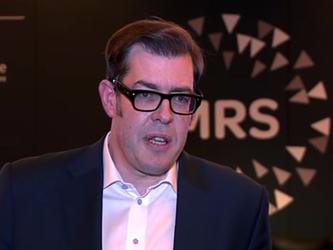Social data – growing up, going mainstream
The number of people using social media – 67% of the UK population is on Facebook alone – means it is no longer the realm of the early adopter, and the data it generates should stop being regarded with scepticism.
Jake Steadman, research director, international, Twitter, said researchers should see that social data provides them with an opportunity to become storytellers and leaders, with the agility to make same-day decisions. “We need to get over our obsession with precision,” he said. “What we all want to do is help businesses make the right decisions, and directional insights can do that.”
Jess Owens, associate research director at Face, said the fact social was still given “early adopter status” by many researchers said more about the researchers than social platforms. “They’re part of the infrastructure of communication, entertainment and news,” she said, warning that if research teams failed to embrace social data, marketing functions would quickly snap it up.
The democratisation of access to consumer data across an organisation is leading to conflict over ownership in many businesses, the session heard, with PR tending to want control over Facebook and HR feeling they should have LinkedIn. BT head of digital integration Christopher Wellbelove said too few organisations had senior leaders thinking socially. “We’ve got a lot of people making decisions on social media who aren’t even on social media.”
Tom Ewing, senior director at BrainJuicer, said the use of social data was moving rapidly from adolescence to maturity, but that its deployment was patchy and tended to be skewed towards tactical use rather than informing strategic decisions. It should be seen not as a potential replacement for other methodologies but as a tool to be used in conjunction with other approaches.
Owens said she was already seeing more integrated briefs linking social tools with broader qualitative projects.
Social data has been linked with other sources of information to offer householders reduced insurance premiums if their Twitter profiles indicated a reduced level of risk, said Jenny Burns, group communications brand and social media director with RSA Insurance.

We hope you enjoyed this article.
Research Live is published by MRS.
The Market Research Society (MRS) exists to promote and protect the research sector, showcasing how research delivers impact for businesses and government.
Members of MRS enjoy many benefits including tailoured policy guidance, discounts on training and conferences, and access to member-only content.
For example, there's an archive of winning case studies from over a decade of MRS Awards.
Find out more about the benefits of joining MRS here.












0 Comments